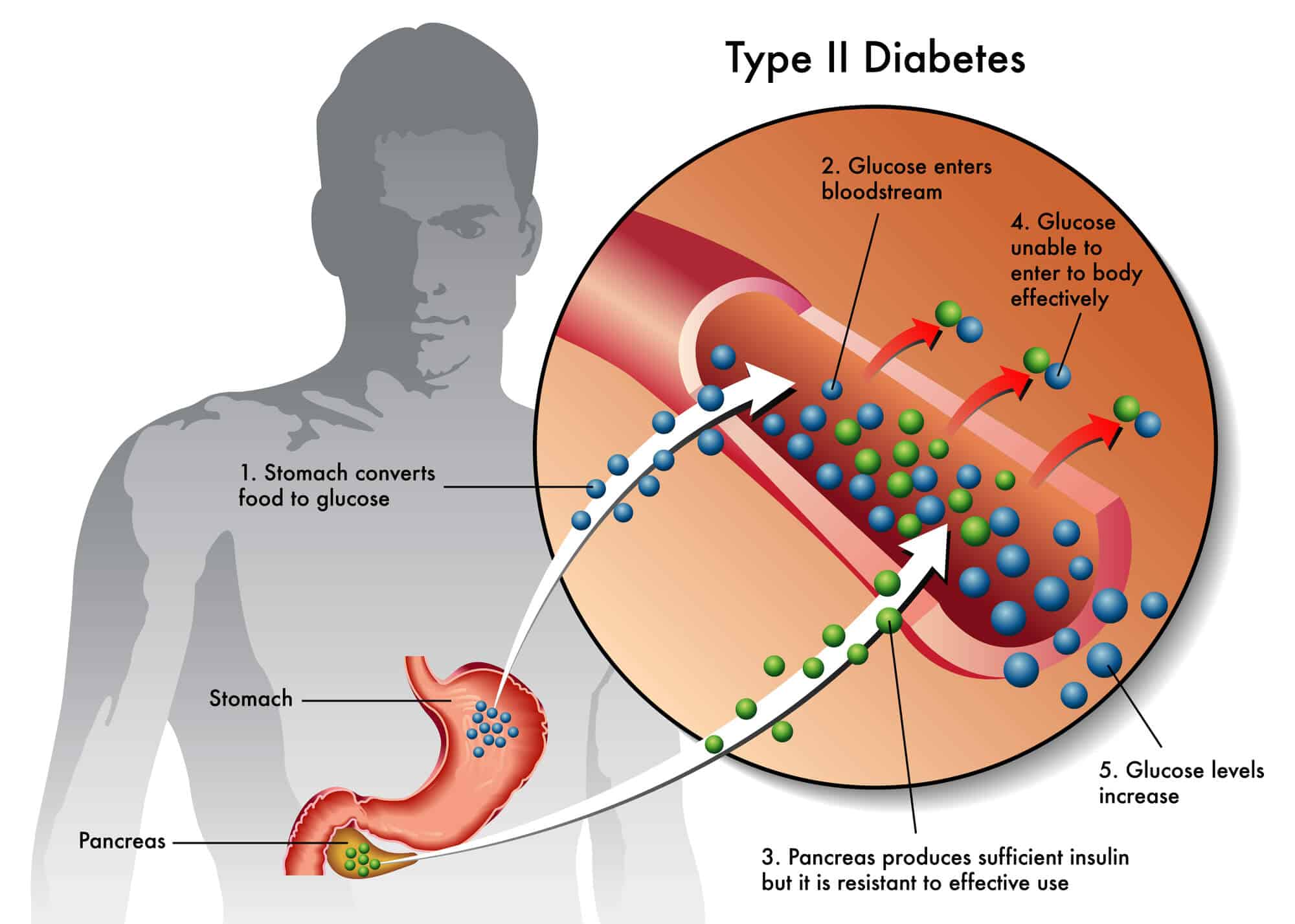Forty of them have not been identified before. This is according to a large-scale study of diverse populations that increases our understanding of type 2 diabetes

New research from the University of Massachusetts at Amherst helps identify genetic links to type 2 diabetes risk.
According to the Centers for Disease Control and Prevention (CDC), 37.3 million Americans have diabetes. 95% of these people have type 2 diabetes, the most common type of diabetes.
Type 2 diabetes (also called non-insulin-dependent diabetes or adult-onset diabetes) is caused by the body's poor use of insulin. This long-term chronic disease causes an excess of sugar to circulate in the bloodstream. High blood sugar levels can eventually cause cardiovascular, nerve and immune problems.
There is no cure for type 2 diabetes, although weight loss, healthy eating and exercise can help the patient manage the medical condition. The exact cause of type 2 diabetes is unknown, but researchers have recently found a genetic link to getting the disease.
An international team of scientists is conducting ongoing research on diverse populations around the world, which has discovered important new insights into the contribution of genes to type 2 diabetes.
The study was published May 12 in Nature Genetics. "Our findings are important because we are moving toward using genetic scores to weight a person's diabetes risk," says co-author Cassandra Sparklan, senior lecturer in biostatistics and epidemiology. It included a meta-analysis of 122 genome-wide association assays (GWAS).
"The global incidence of type 2 diabetes, a life-changing disease, has quadrupled in the past thirty years, affecting an estimated 392 million people in 2015," says Andrew Morris, professor of statistical genetics.
The research is an important step towards the final goal - to identify new genes and understand the biology of the disease, which has the potential to help scientists develop new treatments.
It is also an important milestone in the development of "genetic risk scores" to identify people who have a greater early tendency to develop type 2 diabetes, regardless of their background population.
In the meta-analysis, they compared the DNA of nearly 181,000 people with type 2 diabetes against 1.16 million people who do not have the disease. By searching the entire human genome for groups of genetic markers called SNPs (single nucleotide polymorphisms), GWAS look for genetic differences between people with and without the disease. The technique allows scientists to target parts of the genome involved in disease risk, which helps pinpoint the genes that cause the disease.
To address this bias, the research scientists assembled the world's most diverse collection of genetic information about the disease, with nearly 50% of people from East Asian, African, South Asian and Hispanic population groups.
"Until now, more than 80% of this type of genomic research has been done in populations of white European descent, but we know that scores developed only in people of one ancestry will not work well in people of a different ancestry," said Sparklan, who helped analyze and coordinate the sharing of data from populations of East Asian origin.
The researchers have now identified 117 genes that probably cause type 2 diabetes, 40 of which have not been previously reported. Therefore they feel that this is an important step forward in understanding the biology of this disease.
More of the topic in Hayadan:
- How does the corona virus affect diabetics?
- "You have halved the number of new diabetes patients"
- A technology developed at the Technion improved glucose uptake in diabetic mice
- The engineered micro pancreas from Israel that will try to improve the quality of life of diabetics
- Is surgery the most effective treatment for diabetes?
